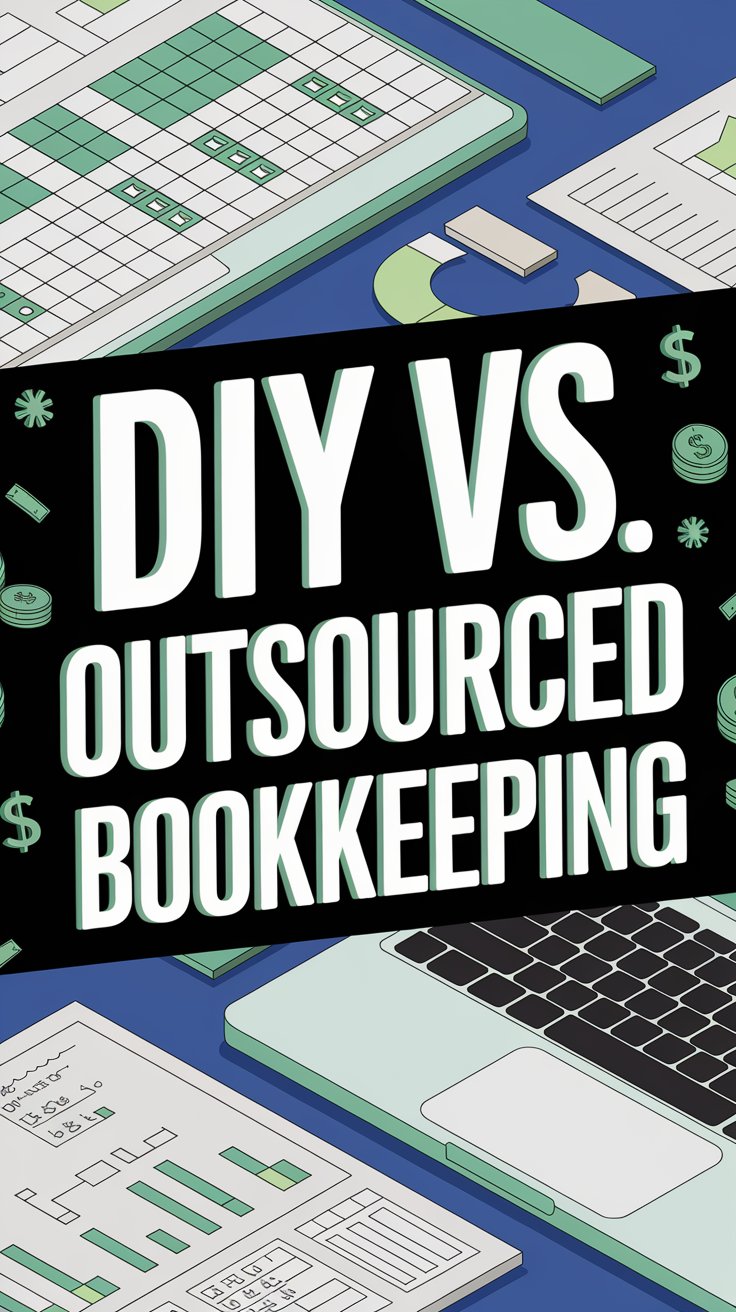Choosing how to handle your bookkeeping can be a challenging decision for small business owners. Should you manage your own books (DIY) or hire a professional to handle them for you (outsourced)? Both approaches have their advantages and drawbacks. By understanding the key differences, you can make the best choice for your business’s unique needs.
DIY Bookkeeping
Pros:
- Cost Savings: If you’re on a tight budget, handling your own books can save you the cost of hiring a professional.
- In-Depth Knowledge: Doing it yourself means you’ll have a hands-on understanding of your finances, which can be helpful when making strategic decisions.
- Flexibility: You can manage your books on your own schedule and adapt your system as your business grows.
Cons:
- Time-Consuming: Bookkeeping requires consistent effort—if you’re juggling multiple roles, it can eat into the time you’d otherwise spend serving clients or growing your business.
- Learning Curve: If you’re not familiar with accounting software or best practices, mistakes can happen, potentially leading to inaccurate records or tax penalties.
- Risk of Errors: Without professional oversight, you may miss important deductions, misclassify expenses, or overlook crucial financial details.
Outsourced Bookkeeping
Pros:
- Expertise and Accuracy: Professional bookkeepers have the training and experience to ensure your financial records are accurate and up-to-date.
- Time Savings: By handing off your books, you free up hours each week to focus on revenue-generating activities or strategic planning.
- Scalability: As your business grows, an outsourced bookkeeper can adapt their services—no need to hire additional in-house staff.
Cons:
- Ongoing Costs: Outsourcing typically involves a monthly or hourly fee, which may be higher than handling your own books (though you might save money in the long run by avoiding errors).
- Less Immediate Control: You’re relying on someone else’s schedule and processes. If you need information urgently, you might wait for your bookkeeper’s response.
- Finding the Right Fit: Not all bookkeepers are created equal—finding one who understands your industry and communication style may take time.
Factors to Consider
- Budget: If you have minimal funds to allocate, DIY might be tempting. However, consider the potential long-term costs of errors or missed deductions.
- Time and Priorities: If your schedule is already packed, outsourcing might free up valuable hours to focus on growth and client relationships.
- Complexity of Your Business: The more transactions, clients, or regulations you deal with, the more likely you’ll benefit from a professional’s expertise.
- Comfort with Financial Software: Are you tech-savvy and willing to learn programs like QuickBooks or Xero? If not, a professional might handle them more efficiently.
- Growth Plans: If you’re planning to scale quickly, having a trusted bookkeeping partner can streamline your financial processes and reduce stress.
Hybrid Approaches
Some small business owners find a middle ground by doing basic bookkeeping tasks themselves and hiring a professional bookkeeper for monthly reviews or year-end cleanups. This approach can save money while ensuring accuracy for critical periods, like tax season.
Making Your Decision
- Evaluate Your Current Situation: List out how many hours you spend (or would spend) on bookkeeping and how confident you feel in your accounting skills.
- Calculate the Opportunity Cost: Could that time be better spent acquiring new clients or refining your products/services?
- Test the Waters: If you’re unsure, try a short-term arrangement with a bookkeeper. If you find you’re saving time and avoiding errors, outsourcing may be worth it.
Final Thoughts
Deciding between DIY and outsourced bookkeeping is a personal choice that depends on your budget, time, and comfort level with financial tasks. If you have a knack for numbers and plenty of time to spare, DIY might be a good fit—at least for now. But if you’d rather focus on your core business activities and ensure your books are always accurate, outsourcing could be the key to long-term success.
Need Help Making the Call?
If you’re leaning toward outsourcing but still have questions, consider scheduling a consultation with a professional bookkeeper. They can walk you through the process, outline the benefits for your specific business, and give you peace of mind about your financial future.
